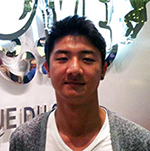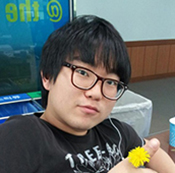Defined as the act of recovering from a hangover in the form of eating certain dishes, hejang is a unique feature of the Korean drinking culture. In fact, the word has no accurate translation in any other known language. Although it is not widely practiced abroad, hejang is a natural concept in Korea, to the point where restaurants specializing in hejanggook, (translated as hejang soup), can be spotted anywhere near bars. The act may even be thought to be a conjoined part of a night out with friends or colleagues; after any drinking beyond the border of “light,” those who participated in the party usually meet up the next day to venture for a meal that will alleviate their stomachs and head from aches. To some, hejang may simply be a cleansing, but to most, it is a chance to become closer with each other. Hejang is a deeply rooted practice in the culture and is recommendable to those who have not yet tried it. With diverse kinds of people comes the same degree of variety in hejang methods and advices.
David Park (Undergraduate freshman, from Shanghai, China):
McDonalds! When you go out so often, you get tired of trying to find good places for food. Go to McDonalds, order three sausage McMuffins, and then munch them down. I have them because they’re simple with just sausage, eggs, and bread. For drinks, I have orange juice because I don’t drink carbonated drinks and it’s the only alternative in McDonalds aside from water. After I came to Korea, I have actually started liking gamjatang, a type of beef stew with potatoes, and would recommend the place Jomaroo, in front of Chungnam University.Yohan Choi (Undergraduate junior, from Korea):
Word is, to digest alcohol a bit of protein, fat, and lots of water is required. I’m not sure, but they say cheese is really good for hejang for that reason. The purpose of hejang is to eat something you crave and activate your stomach. It’s not like eating hejanggook will break down the alcohol more quickly for you. So it’s best to eat what you want to eat, and I think it’s only habitual of Koreans to find something with soup. But if you think about it, eating something spicy and salty when you’ve already ruined your stomach is obviously bad for you. On a side note, kongnamulgook (bean sprout soup), or booguhgook (dried Pollack soup), may be good because they’re very mild. Anyways, hejanggook may not be as brilliant as people may make it to be. Also, when you are drinking water, cold water may surprise your stomach, so “lukewarm” water is better. And in my case slowly drinking chocolate milk after the night helps me the next day. What is my favorite hejang method? Well, soondaegookbap, which stuffed pig intestine soup, and hamburgers! A while back, I’ve also tried soft tofu as well. If you go to any markets nearby, they sell little packets of them with sauce. It was nicer than I thought it would be. You should try it once as well.Raymond Chong (Undergraduate Freshman, from Texas, USA):
In the morning, my mom makes kongnamulgook (bean sprout soup) for me with a bit of dried Pollack and spring onions. It’s the best thing to get you going again. Just boil some bean sprouts with dried anchovies without any flavoring; keep everything natural. When the soup starts to change color, put some dried Pollack and serve some rice and kimchi, best if fermented well, and there’s the magic potion. Also, something smooth like seollengtang, which is cow bone soup with beef, is great. To be honest, as long as it’s not spicy, any Korean soup will do because it feels like you’re pushing the alcohol leftovers down with warm liquid goodness. What you want is to feel comfortable, so don’t drink cold water with the soup. Tea is best but warm water does the trick too. You know how sometimes people get ice cream after drinking? I actually don’t like it because it stops your stomach from working, preventing the absorption of the alcohol for the time being, and it really hits you hard the next day.




